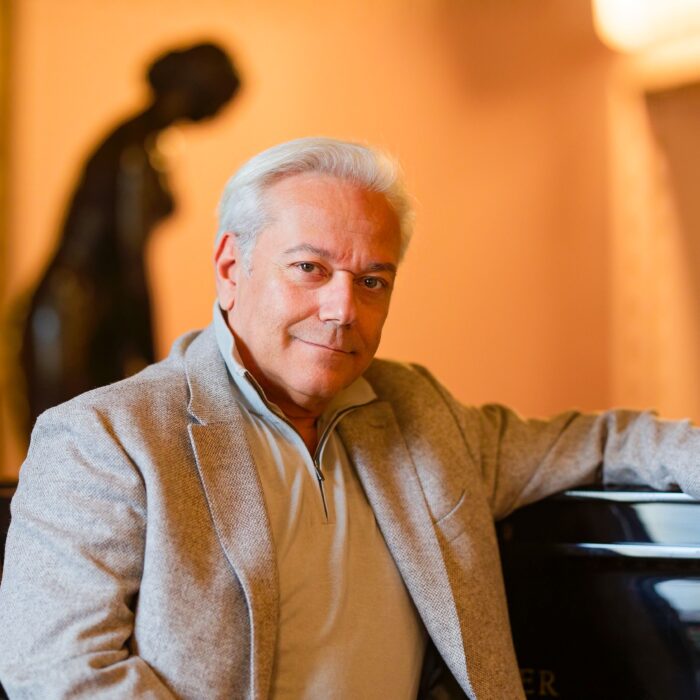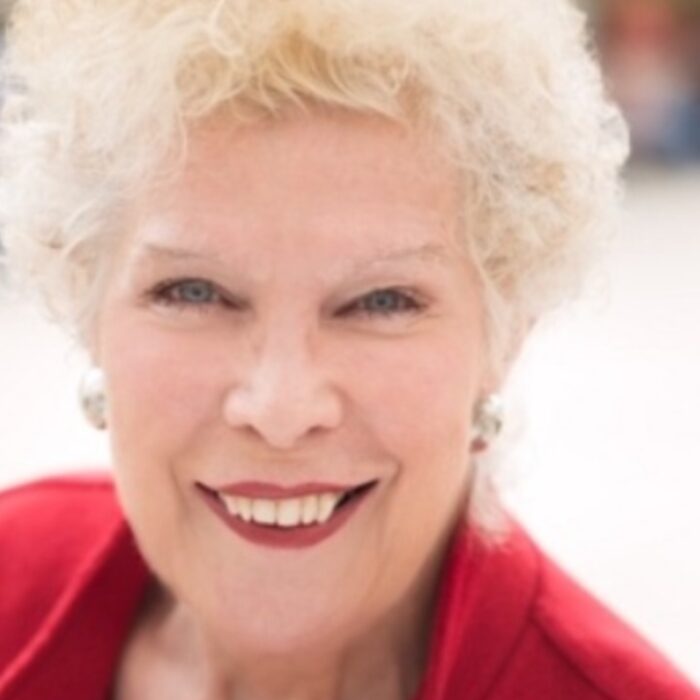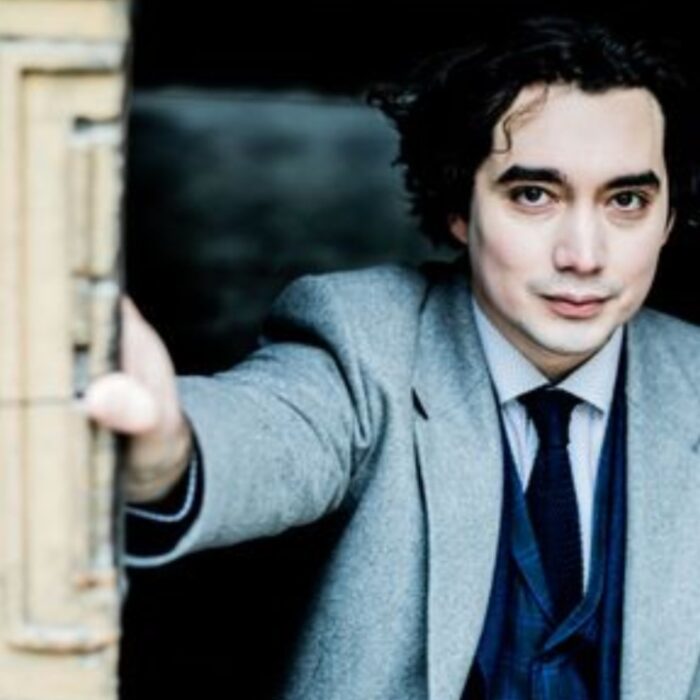
Q & A: Composer Blake Allen & Librettist Will Nunziata on Their Upcoming ‘The Waves’ Opera
By David SalazarPublished in 1931, “The Waves” is recognized as Virginia Woolf’s most experimental work, featuring soliloquies from six different characters in a unique stream-of-consciousness. And now it will get an opera.
The team behind the work is composer Blake Allen and director / writer Will Nunziata. Allen, an award-winning composer, violist, and producer, enjoys “merging merging the worlds of opera and musical theatre with traditional classical forms,” while exploring queer themes “juxtaposed against the hypocritical meritocracy of Disney ideals.”
Meanwhile, Nunziata is NYC-based award-winning director, writer, and creator of theatre, concerts, television, and film, whose short film “The Old Guitarist” earned him awards at the London Movie Awards, New York Movie Awards, and Paris Film Awards. Meanwhile, his screenplay for “Lillith” has earned recognition from the 2023 Hollywoood Blood Horror Festival and the New York Screenplay Competition. He also directed such plays as “Figaro: An Original Musical,” “White Rose: The Musical,” “Van Gogh: An Original Musical,” “Faygele: A New Play, and “Miss Peggy Lee,” among others.
The duo spoke briefly to OperaWire about their new collaboration, will get a preview in early 2025.
OperaWire: What was the inspiration for taking on this opera adaptation?
Will Nunziata: I have always loved Virginia Woolf and her work. As a former singer and now writer-director, I have always felt that “The Waves” had a rhapsodic, musical quality to it – the “ebb and flow” of the novel cries out “orchestra” and “singing.” At the beginning of the year, I re-read it, and “saw” it on the stage and “felt” it should be adapted into a full-fledged opera. I couldn’t believe no one else had ever done it, so after I wrote a draft of the libretto, I contacted my friend Blake who was already thinking of writing music to an opera-version of “The Waves.” Truly! He had a 50 song playlist for it on Spotify already! It was fate, and I am so excited to be working with Blake on this.
Blake Allen: Virigina Woolf has been an important literary figure of my life for many years. The way she is able to explain motivations and emotions through her cerebral, stream of consciousness feels more akin to how I feel music can express these same feelings. I have been wanting to adapt “The Waves” into an opera for years, so when Will approached me to collaborate on adapting the piece, I had to jump at the opportunity to say yes.
OW: What inspired you about the novel?
WN: What inspired me most is “The Waves” profound exploration of human consciousness and the nature of time. The novel, with its poetic language and stream-of-consciousness style, delves into the inner lives of six characters, tracing their interconnected journeys from childhood to old age. The novel’s structure, with its recurring motif of the waves crashing on the shore, creates a sense of rhythm and movement that I found deeply musical. The characters’ thoughts and emotions, often fragmented and fleeting, seemed to lend themselves naturally to operatic expression. I cannot wait for people to hear what Blake has created – a gorgeous, original, moving, thrilling, devastating, and poetic 21st century masterpiece of a score!
BA: I am enamored with how there are multiple ticking clocks occurring simultaneously: from the tides of the ocean, to the rising and setting of the sun, to our seemingly predetermined lives, to how friendships ebb and flow. We all collectively have our own thoughts that we never share with one another, and here is a story of six friends who share the same time space as one another, but we never experience what would be expressed aloud. Friendships morph and change, and we may never know what our loved ones actually think of us when they are alone with their own thoughts. And it is a wonderful challenge to depict this through music.
OW: What excites you about this challenge?
WN: I get excited by a challenge, and to be working with Blake on an opera based upon one of literature’s most gorgeously written novels has been a thrill. We are both having so much fun in the “sandbox” working on this. The novel’s themes of love, loss, and the search for meaning have resonated with both Blake and me on a personal level – which excites us to know that it will most likely resonate with others. In adapting The Waves for the opera stage, I seek to capture the essence of Woolf’s prose while also creating a work that is also dramatically compelling. I believe that The Waves is a timeless work of art that speaks to the deepest truths of human experience – a novel that I have returned to again and again over the years, and each time I discover new layers of meaning. I am honored to have the opportunity to bring this extraordinary work to life on the operatic stage with my dear friend, Blake. I also hope the opera honors Virginia Woolf for not only her work on “The Waves,” but for her breadth of artistic contribution to humanity worldwide.
BAA: Speaking of an inner monologue, Will has done something wonderful with the libretto – he has morphed the exquisitely languid prose of Virginia Woolf into fluttery encapsulations. How does a composer then take snippets of ideas and develop them into leitmotifs and create forward motion when we experience the same scenario through six different vantage points? It has been a thrill to create simultaneity. Much like the choral-like moments in the operas of Mozart or the multilayered polyphony of of the music Ligeti, I am striving to create a piece of music that allows an audience member to return and hear something new every time they experience the work – so they can follow along with a different character each time. Maybe the first time you hear the piece, you might resonate with the torrid pain of counter tenor, Neville. But then upon further investigation, one might hear the sullen languish of the mezzo soprano Rhoda. I am striving to investigate, through Will’s brilliant words, how each character not only stands alone, but affects another, and morphs into a collective, singular current.


